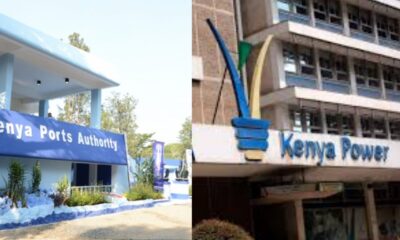Nearly two weeks ago, Cyclone Idai swept through Mozambique, Zimbabwe and Malawi, leaving behind what now look like scenes from an apocalyptic movie.
At least 690 are so far confirmed to have been killed by the storm, billed as the worst weather disaster in the southern hemisphere. The toll is projected to climb to more than 1,000.
A Tuesday summary by Reuters of the trail of destruction is sobering.
In Mozambique, 447 people killed; 1,500 injured; 33,600 houses destroyed; 500,000 hectares of crops lost. In all, 1.85 million people affected.
In Zimbabwe, 179 people killed; 200 injured; 16,000 households displaced. Number of affected at 250,000.
In Malawi, 60 people killed; 672 injured; 19,328 households displaced. In all, about 868,895 people.
With lakes, one 125 kilometre-long in Mozambique, and people marooned on new ‘islands’ without clean water, and cholera beginning to strike, it will get worse.
But, perhaps, even more tragic is the helplessness of the governments in the affected countries, and Africa in general, to deal with the Cyclone Idai crisis.
The best some of us can do is whine about the double standards and indifference of the West, the hated imperialists and their media, to respond forcefully to the humanitarian crisis.
In the long term, the most productive thing we need to do is understand why we struggle to get on top of these crises and what can be done to reduce our seeming helplessness.
For starters, we have trashed our environment and taken too much from it to cater to our exploding populations.
Like in other parts of the world, we have changed our environment so fundamentally that we altered the physical architecture of our countries in ways we have not yet fully confronted.
Floods, droughts, landslides, bush and forest fires, dried rivers and lakes, these are now going to pretty much be the order of the day.
However, generally, the way we have organised government and power is not to manage for the crises of the 21st century.
In several countries in Africa, politics and power are structured in a fairly straightforward way: Get power through armed means, a rigged vote or leveraging your ethnic majority.
When in power, jail, exile, kill, buy off, shoot, or ignore problems. Build a coalition and pillage the natural resources, and hold the predatory machine together by distributing the resources as patronage.
There is hardly any logic for feeding the cash cow: Renewing resources (for example, replanting forests after illegal logging), closing up the giant poisoned holes after quarrying for stone or digging up minerals.
Even reasonably half-responsible governments have few people to deal with these challenges.
For, as things are, governments will fork out hundreds of thousands of dollars to train 12 anti-terrorism experts; but will leave it to USAid or the European Union to train two climate change scientists.
Then, things like cyclones, and drought, have a bad habit of being non-partisan; they will often strike strongholds of both the ruling party and the opposition, or do so at a time when the next election is three years away.
Governments then find themselves having to treat all parts of the country equally, and doing so without the certainty that they have bought the people’s vote in the next election with it.
The fact that we have states that function as little more than means to seize and redistribute goods and resources in a skewed way leaves us struggling for very many things.
If you follow the news in Africa, most of the countries cannot do even a DNA test.
When there is a high-profile murder, inevitably, a few days later, you will read stories of a group of security officials in ill-fitting suits and bad wigs getting on a plane to South Africa or London with trace evidence to carry out DNA tests.
All this because, to build a bureaucracy and state institutions with the competence to do stuff like this, to rescue peasants marooned by floods, or to develop delivery systems that get relief to drought-affected areas before people perish, you have to channel money from things like buying anti-riot gear (which keep you in power) to spending it on weather satellites (which only does so in the long term).
To make matters worse, the best scientist is probably not from your village, and her father is most likely not a supporter of your party, but a relative of the opposition leader.
A technocratic and competent state that responds to a natural disaster threatens power the way we have organised it. It will have to be dismantled first before we see the end of this embarrassing spectacle of us crying for international aid even when a small landslide hits a town.
Mr Onyango-Obbo is the publisher of africapedia.com and roguechiefs.com. @cobbo3

 General News7 days ago
General News7 days ago
 Politics6 days ago
Politics6 days ago
 Business News5 days ago
Business News5 days ago
 General News5 days ago
General News5 days ago





